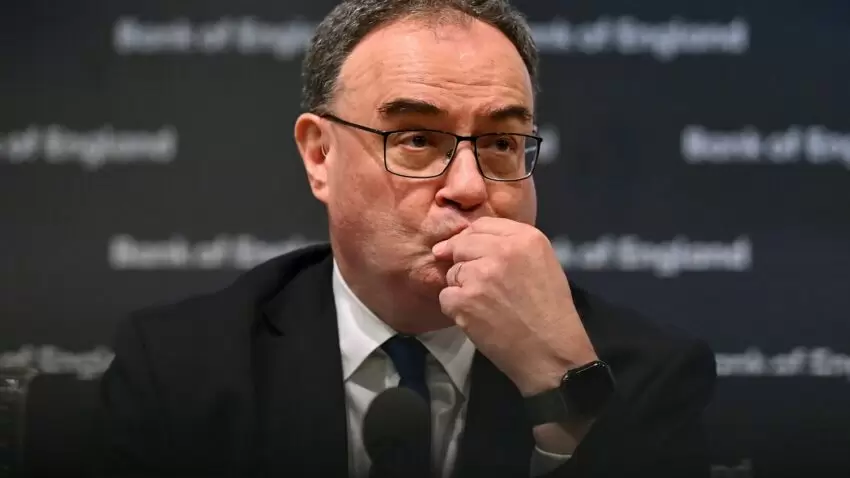Reforming Global Trade: Insights from Andrew Bailey
In a recent speech delivered in Dublin, Andrew Bailey, the Governor of the Bank of England, spoke on the vital role that trade plays in both goods and financial services. He emphasized the significance of trade for open economies such as the UK and Ireland and highlighted the urgent need for reforms in the global trading system.
Bailey commenced his speech by expressing gratitude to the Irish Association of Investment Managers for the invitation and acknowledged the previous occasion when he had to cancel due to the calling of a General Election in the UK. Noting the limited developments in the past year, he recognized the critical topic of trade and its relevance today.
The Macro and Micro Relationships of Trade
Bailey outlined two fundamental aspects that characterize the macro dimension of trade:
- Trade Enhances Economic Output: Trade facilitates specialization and efficiency, allows for knowledge transfer, and ultimately fosters productivity and economic growth. These principles, dating back to Adam Smith, remain critical in understanding the positive impact trade can have on economic welfare.
- Trade Imbalances are Natural: It is unrealistic to expect a consistent balance in trade between countries. The global trade system operates within a closed system where imbalances are normal due to varying economic conditions.
Bailey underlined the notion that while the macro-level perspective on trade is essential, it intertwines with national policies and the overarching framework of the world trading system. He pointed out that the rules established through the World Trade Organisation may be experiencing strain, necessitating immediate reform actions.
The Current State of Global Trade
Bailey indicated that trade dynamics underwent a significant shift during the COVID-19 pandemic, which disrupted the efficiency of established supply chains. He argued that although initial supply chain disruptions were addressed quickly, a complete return to pre-pandemic trade patterns has proven more complicated than anticipated due to emerging national security concerns.
Moreover, he referenced Russia's illegal war in Ukraine as a stark reminder of how geopolitical tensions could disrupt global trade, reinforcing the need to mitigate risks through strategic supply chain diversifications rather than complete production reshoring.
Key Considerations for Trade Policies
In concluding his remarks on trade, Bailey emphasized four points that should guide future discussions and policies:
- Free Trade’s Fragility: A commitment to rebuilding the free trade system is essential. It’s important to engage with those advocating for trade restrictions to understand their concerns.
- Macro and Micro-Level Evaluations: To effectively tackle trade imbalances, a holistic view encompassing both macroeconomic drivers and the micro-level rules of the trading system is crucial.
- Tariffs as a Last Resort: If tariff actions are deemed necessary to initiate discussions on trade issues, it reflects a failure in the current multilateral system that requires rectification.
- Collaboration and Sustainability: The trading system's sustainability is vital for open economies like the UK and Ireland. Policymakers should strive to enhance trading conditions amidst increasing supply-side uncertainties.
Financial Services: A Two-Way Relationship
Transitioning to financial services, Bailey noted the common misconception that trade in this sector primarily flows from the UK to the EU. He disputed this notion, asserting the importance of recognizing the reciprocal nature of these financial relationships, particularly between the UK and Ireland.
He illustrated his point through the episode involving Liability Driven Investment (LDI) funds during 2022, which highlighted inherent vulnerabilities in UK financial markets affecting entities in Ireland and Luxembourg, thus necessitating a coordinated regulatory response.
Bailey also highlighted the imperative for both the UK and EU to fortify their domestic capital markets while ensuring access to global capital. This stability is critical in addressing essential challenges such as demographic shifts, climate transitions, and national security.
Conclusion
In his concluding remarks, Bailey reaffirmed the benefits of open financial markets for economic growth and emphasized the need for consistent regulatory standards. By reducing non-tariff barriers, financial markets can become more robust, enabling a stronger collective response to evolving global challenges.
Ultimately, Bailey’s insights underline the complexities and interdependencies within the global trading framework, necessitating thoughtful collaboration and reforms to sustain shared economic prosperity.
Bias Analysis
Key Questions About This Article




